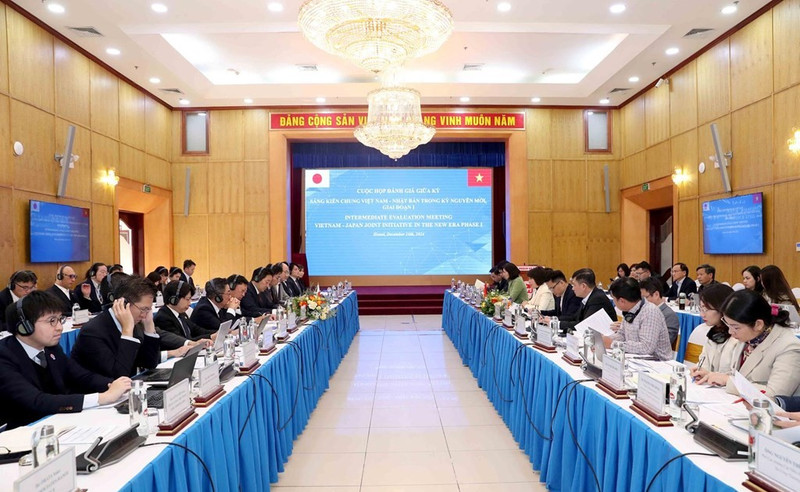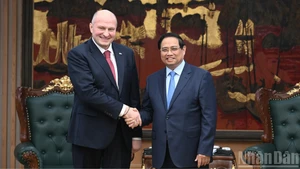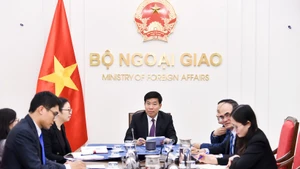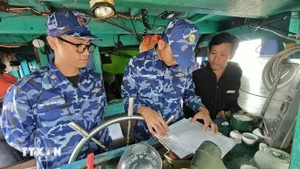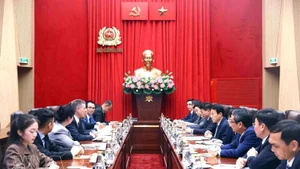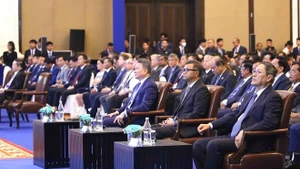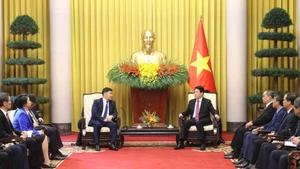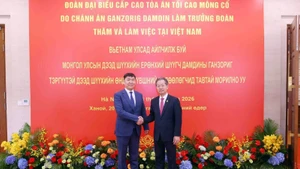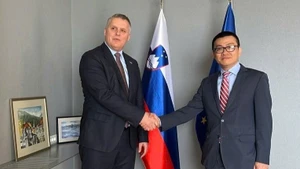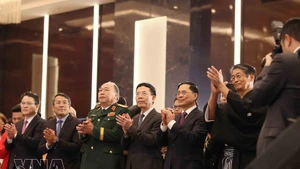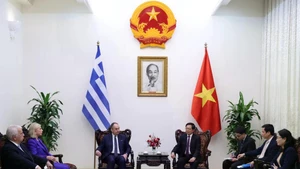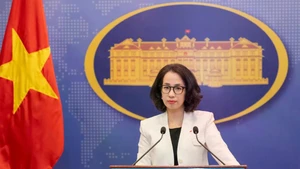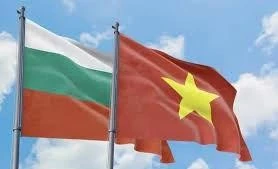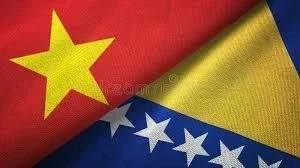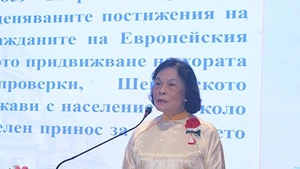Co-chairing the event, MPI Deputy Minister Nguyen Thi Bich Ngoc noted the initiative, launched in 2003, is a long-term effort to build up the foundation for the two countries’ economic cooperation. It is also an important dialogue channel and a special mechanism between the Vietnamese Government and Japanese enterprises.
She considered the recent elevation of bilateral ties to the “Comprehensive Strategic Partnership for peace and prosperity in Asia and the world” as a chance for both sides to carry out the Joint Initiative in the most effective manner to tackle bottlenecks and speed up the progress of the initiative’s working groups.
The MPI and other Vietnamese agencies are ready to coordinate with Japan to share the latest information about newly issued strategies and existing regulations so that both sides can work out suitable programmes and projects, Ngoc said.
Deputy Ambassador of Japan Ishikawa Isamu held that with the “Comprehensive Strategic Partnership for peace and prosperity in Asia and the world”, the Vietnam - Japan relationship is now in its prime. This is an opportunity for the countries to effectively implement the Joint Initiative with a new and more efficient approach, to devise major orientations and measures for further intensifying bilateral cooperation.
As a big partner in terms of trade, economy, investment, and official development assistance (ODA), Japan always wishes to further promote its investment presence in Vietnamese provinces and cities, he went on.
The Japanese Government and enterprises hope to see stable cooperation results in multiple spheres like digital transformation, green transition, innovation, and high-quality human resources development. They are also willing to assist with Vietnam’s efforts to become a developed and high-income nation by 2045, according to the diplomat.
He also highlighted his country’s readiness for long-term cooperation with and assistance for Vietnam to resolve challenges the latter is facing.
At the meeting, representatives of working groups reviewed implementation results of the action plan for Phase 1 of the Joint Initiative. They also discussed cooperation directions for some key areas such as promoting the Asia Zero Emission Community/green transition, and training semiconductor manpower.
Vietnam called on Japan to increase connecting the countries’ enterprises so that they further explore investment chances in the fields matching Vietnam’s demand and Japan’s strength like smart manufacturing, smart city building, digital content, cyber security, environmental technology, health technology, semiconductor, green hydrogen, and artificial intelligence.
The Vietnamese side also suggested enhancing ties between vocational education institutions and enterprises of Japan to help train the workforce in Vietnam.
Meanwhile, Japan proposed Vietnam build a special mechanism for jointly implementing certain projects, create a model for semiconductor manpower exchange and development between the two countries, and issue guidance for the compliance with the laws on investment and enterprises.
Phase 1 of the Vietnam - Japan Joint Initiative in the new era comprises five main groups of issues, namely promoting the Asia Zero Emission Community/green transition; facilitating innovation and digital transformation; enhancing supply chains, including developing support industries; training high-quality human resources; and conducting institutional reforms to improve the investment environment.
